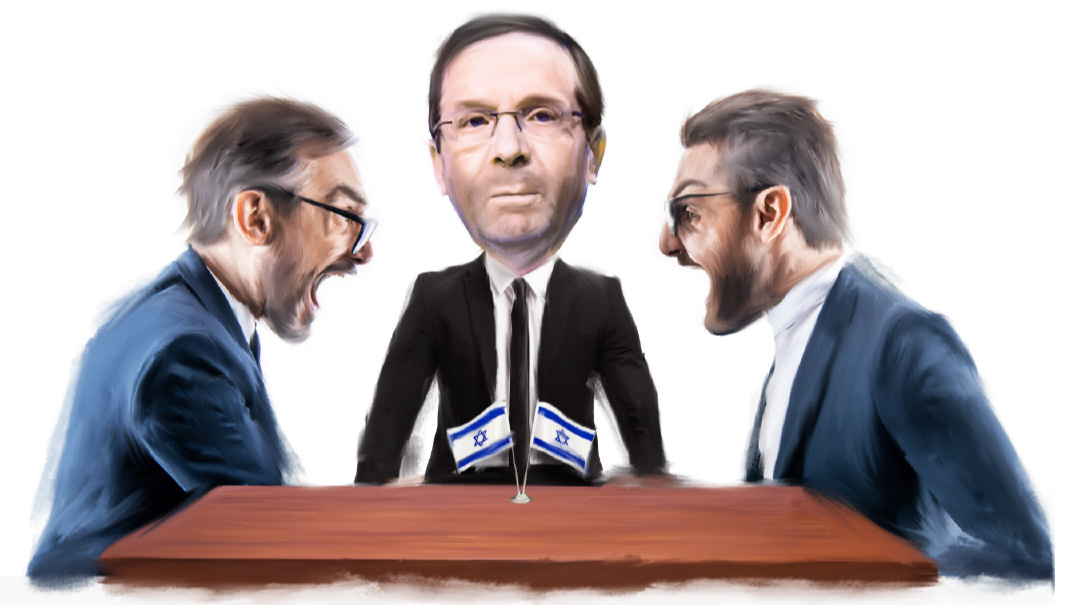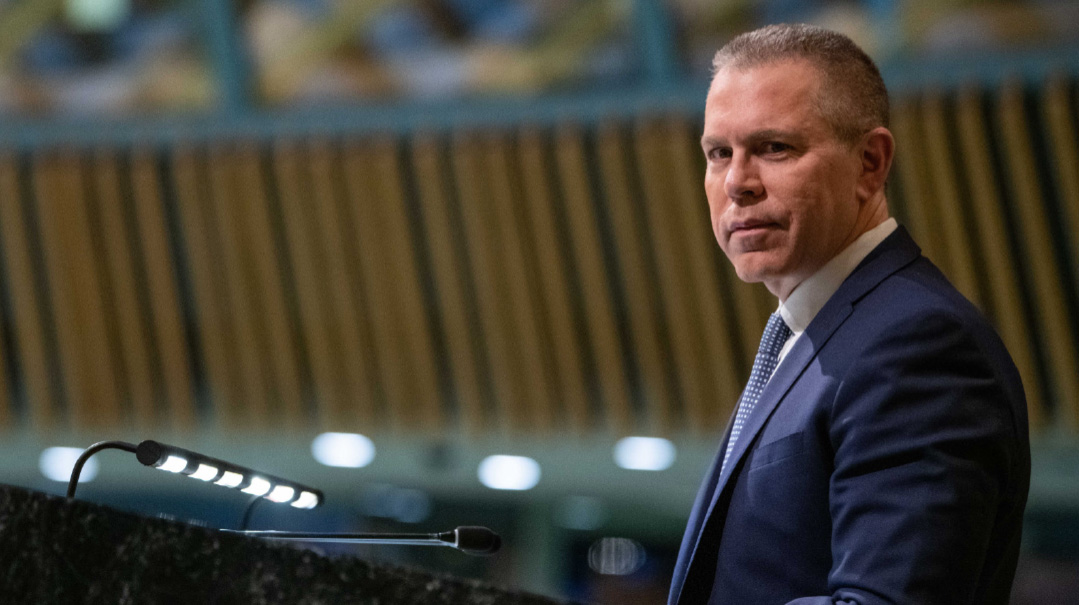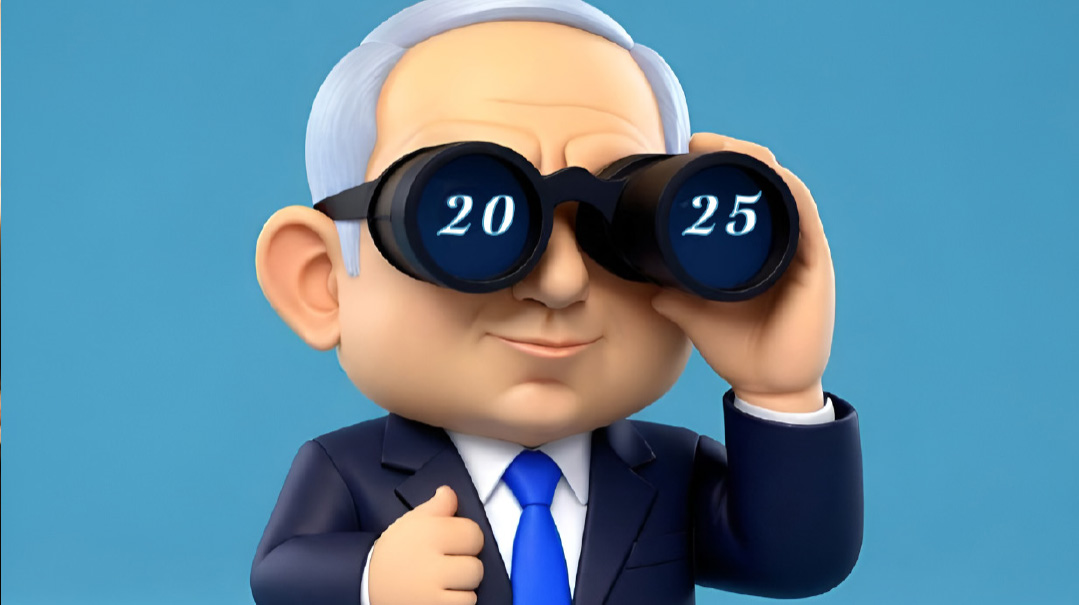Herzog’s Halfway House

In the political crisis of the past four years, the Israeli president's job has become unexpectedly complicated

1
The Israeli president’s official residence may be this country’s one government building that most calls to mind the reserved splendor of the White House. After going through security, the visitor finds himself in an expansive, grassy garden, in the center of which stands a large table used for open air meetings.
This table has seen frequent use since President Herzog took office almost two years ago, with one guest in particular clouding the clear Jerusalem air with the fumes of his cigar. And to remove all doubt, the man making use of the ashtray was not the president, but Prime Minister Binyamin Netanyahu, a fan of white smoke.
In Israel, the president’s role is largely ceremonial, his primary function being to invite the winning candidate to form a government after an election. But in the political crisis of the past four years, that job became an unexpectedly complicated one. Herzog’s predecessor, longtime Likud member Reuven Rivlin, was suspected by members of his own camp of conspiring to bring down Netanyahu. Oddly enough, Isaac Herzog, a fixture of the Israeli left and a former chairman of the Labor Party, is perceived as far more objective, and was elected to the post by right-wing MKs, including Netanyahu.
Herzog is a moderate figure who has found himself at the heart of what is possibly the most complicated crisis in Israel’s history. His father, Chaim Herzog, whose bust is on display in the garden, never saw the like during his decade-long tenure.
For the past few months, it’s been hard to avoid the sense that the State of Israel is coming apart at the seams, whether it’s the masses in the streets, the deteriorating security situation, the economy, or just the feeling that there’s no one in charge and the government has lost control.
The minister of public security attacks his own government for the wave of terror, while the defense minister is fired in the dead of night after warning of the disintegration of the reserve forces, only to be returned to his post after public opinion makes itself felt. The announcement regarding Gallant’s reinstatement was made by Netanyahu at a press conference over the holiday, during which he pinned the blame for the rising terrorism on the previous government, led by Naftali Bennett…
2
Normally, the president’s largely ceremonial meetings are planned in advance and carefully recorded in his schedule, but that’s not what happened the day I was invited to the official residence, as part of the negotiations over the judicial reform held there.
After the right threw cold water on his compromise offer a few weeks before the holiday, President Herzog almost threw up his hands. He never expected the two sides would get together again under his roof so quickly, this time with no preconditions.
In retrospect, one can say that the right’s reaction to Herzog’s initial compromise offer was yet another avoidable blunder in a long train of errors. It led Herzog to propose a more one-sided solution, in the realization that the right would reject any proposal on principle, even if he went a step or two further in their direction.
In the inner circle of Prime Minister Netanyahu, who belatedly decided to “take charge of the affair,” some are admitting that handing the reins to Justice Minister Yariv Levin in the first stage was a colossal error.
“Levin managed it as he did the coalition negotiations,” a source in the prime minister’s office told me, still licking his wounds. “In Levin’s hands, the Likud’s election victory turned into a defeat — our allies squeezed us dry.”
“The justice minister acted like a lawyer sticking to his story throughout the trial, without a hint of flexibility, and in the final test, he failed big time,” a chareidi source told me of Levin. “But Bibi also bears the blame — he can’t hide behind the justice minister.”
3
For months, President Herzog has invested heart and soul in arriving at a compromise. Initially, he sent Ovad Yechezkel, a former cabinet secretary well connected in the Likud, to manage the talks on his behalf.
But at that stage, Bibi avoided direct talks with the president’s team due to the restrictions placed on him by Attorney General Gali Baharav-Miara. In private conversations, President Herzog surmised that without those restrictions, an understanding could have been reached with Netanyahu, sparing Israel a months-long crisis.
So Bibi, with an eye on his legal situation, chose his words carefully, even in private conversations, and avoided discussing the matter directly with the president’s emissaries. The result was that Levin oversaw the compromise talks instead, in much the same way he oversaw the coalition talks: without consulting his allies and doubling down on every minor detail regarding the Judicial Selection Committee, which the chareidim saw as dispensable. The road from there to a one-sided compromise offer from the president, and a wave of mass protests, was as short as the distance from Motzaei Pesach to a bulke in a Bnei Brak bakery.
After Pesach, the politicians returned to the negotiating table, though their teams had been in touch even throughout the holiday, hashing out compromise proposals. And with Yesh Atid and Likud descending into mudslinging, the big winner for now is National Unity chair and former defense minister Benny Gantz, who has taken a peaceable line and captured first place in prime ministerial preference polling.
Netanyahu doesn’t intend to pick up the talks over the judicial reform in the Knesset until the passing of the state budget, which will be the coalition’s primary focus over the coming month. Bibi hopes that this break will let the Israeli street clam down and give the two sides some quiet time in which to arrive at a compromise.
The negotiators themselves aren’t getting their hopes up, but are leaving room for cautious optimism. “I was sure the talks would be a waste of time,” Likud negotiator MK Hanoch Milwidsky told me. “But when I entered the room, I got the sense that there was a real effort to reach an understanding. Whether we succeed or not — that’s a different story.”
And the answer to that question, to sum up, will determine Israel’s fate this summer.
(Originally featured in Mishpacha, Issue 957)
Oops! We could not locate your form.






